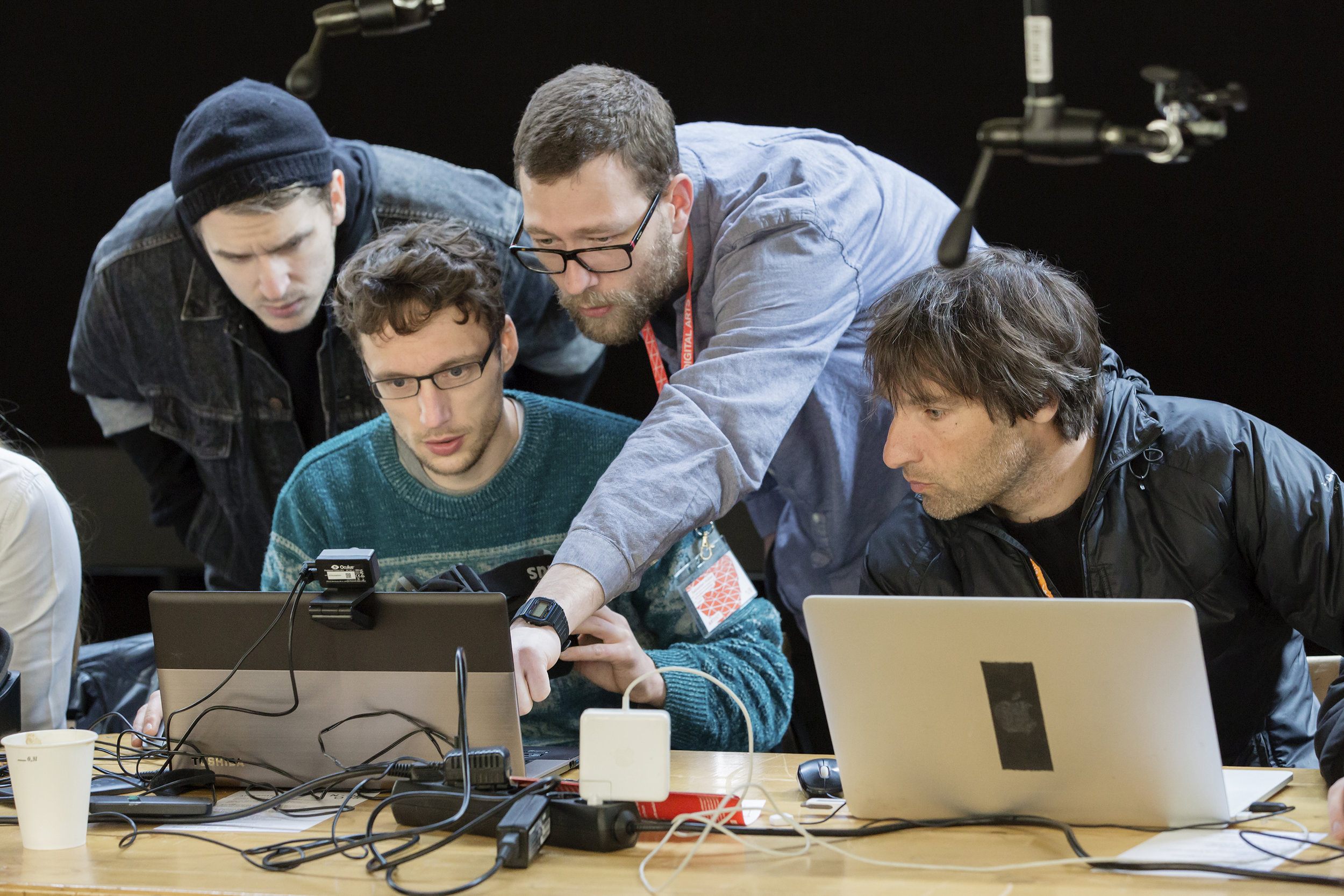Digital Future(s) – Interview mit Theron

Wir haben ein tolles Interview mit Theron Burger führen können, es liefert spannende Denkanstöße über unsere digitale Gegenwart und Zukunft. Allerbesten Dank dafür! Das ist ein schöner Vorgeschmack auf Freitag! Um 15:30 Uhr auf dem Kreativwirtschaftstag (unbedingt vormerken!) decodieren David Brüll, Maria Yablonia und eben Theron Burger aus der NODE Community den Code – und zeigen auf, welche Rolle er für die Gestaltung unserer Zukunft hat. Jetzt einlesen, am Freitag weiter eintauchen!
Fotos: NODE
Feels like Hessen: Theron, some say that new age coding and the digital revolution will change creative industries or even make it despair, to negative?
Theron Burger: The creative industries has always had a tendency towards despair. It sells better than optimism. Playing on peoples insecurities, peoples fears to convince them they have some inherent lack they need to fill. Now dont get me wrong, I’m not saying this about all creatives. Im talking about the creative industries, the commercial industrialisation of creativity for its own sake.
Coding is an incredible thing, and the way it has been distributed arround the planet is quite something. The creation and agenda setting for that technology is still massively centralised. I see a massive opportunity in the prevalence of coding at the moment. Its a wonderfully easy in to the world of machines. Essentially outsourcing ones thought to a machine, giving it the ability to perform on your behalf, multiplying your influence.
I believe people are inherently good, and as the influential potential of technology is distributed we will see that goodness manifest.
Feels like Hessen: You co-founded a robotics school, how will machines change the way we learn and will we have creative director and social media manager robots in agencies soon?
Theron Burger: I think peoples fear of being replaced by technology is largely unfounded. During the industrial revolution in the west, automation changed the way we worked. But looking back at that now, I think no one would argue it wasn’t for the better. People saw industrial sheet metal stamping machines back then the way we see machine learning now, a thing with some level of anthropomorphism. But regardless of what we think of “AI", its really a long way away from setting its own agenda (think hundreds of years). For now ML will be something more like a fancy spell check, giving your average digital worker access to the same sort of automation the industrial revolution gave the physical labourer.
So yes, that will drastically change the way we learn and work, but if all goes well, I would say it will be largely for the better.
Maybe an example : So, Microsoft word has this auto summary function, its had it since forever, but only recently has natural language processing gotten to the point where the summaries make any sense. Think of a tool that takes all the stuff you have to learn and summarises its key points for you. You go over the key points then chose from a more informed position where to invest your time in the details.
Feels like Hessen: Is Frankfurt ready for the digital future, what can we do better?
Theron Burger: The digital future. Interesting. Which digital future? There are many. China’s centrally controlled digitally policed totally opaque future? Or one based on openness, where information is distributed and accessible. Where great care is taken to protect the genuine privacy of individuals, and hard questions are asked about what we give up to counter new threats.
Ok, Im going to get geeky but dont disengage, this is important I think : In software, the bridge between two programs is called an API. or application program interface. It allows the two pieces of software to work together. When you look up a restaurant on Foodora or deliveroo etc, their app send a message to google maps, and asks what restaurants are close to you. That interoperability creates value. Interestingly, RMV doesn't allow Google access to its transport API. Now I’m no Google fanboy, so Im sure there is a reason, but thats a nice example.
Exposing data comes with risks. Im not talking about risks on a geopolitical level. Im talking about responsibility. If RMV exposes their route data API, maybe people see that on google maps, plan a route, and then incorrectly blame RMV if the data is displayed wrong.
How do we deal with that? How do we create a legislative landscape that fosters the creation of that value while staying level headed? Who gets the benefit and how do we make people aware of the parts involved. This is the conversation we need to have.











